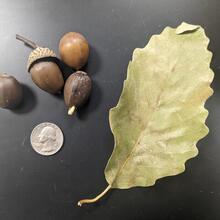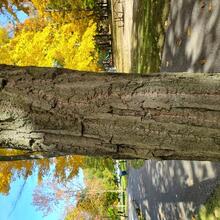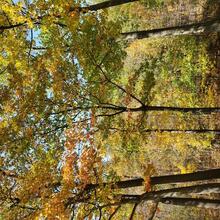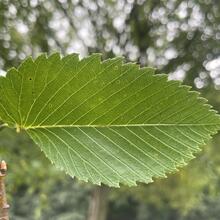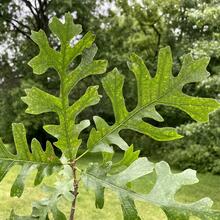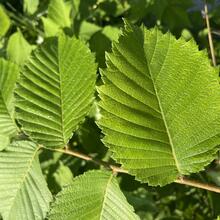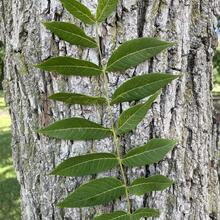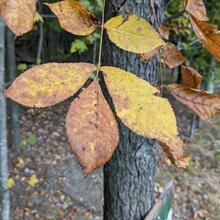Quercus prinus (montana)
Fagaceae
More commonly growing in Southeast Ohio. Prefers moist, acidic soil, but tolerates range of soil conditions. Acorn production during mast years can be messy to maintain. Oak wilt in the region is spreading and is of special concern when considering planting this species.
Summary
 Climate Tolerance
Climate Tolerance
Good
Wildlife Benefits
Acorns food source for birds, mammals; moth/butterfly host; cavity nesting site; bat roosting site; insect host, attracts woodpeckers
Pollination Type
Wind
Plant Hardiness Zones
4 to 8
# Butterfly/Moths that use as host
477
Bloom Time
Spring (Mar-May)
 Shade/Sun Tolerance
Shade/Sun Tolerance
Full Sun to Part Shade: Receives 2 to 6 or more hours of direct sunlight
 Maximum Height
Maximum Height
Medium (40-75 ft)
 Growth Rate
Growth Rate
Slow: 1 ft or less per year
 Soil Type
Soil Type
Loam: Equal mix of clay, sand, and silt. Moderate moisture retention and high nutrient availability.
Sand: Large/coarse particles. Short moisture retention and low nutrient availability.
Silt: Medium sized particles. Moderate moisture retention and high nutrient availability.
Rocky: Large pieces of gravel and rock. Short moisture retention and low nutrient availability.
 Soil Moisture Tolerance
Soil Moisture Tolerance
Dry: Soil normally retains little to no water
Root - Fungal Association
Ectomycorrhizae: Symbiotic relationship with fungi that exist on outside of plant root cells, facilitating nutrient uptake
Pest & Pathogen Risks
Medium; Oak wilt (less susceptible than red oak group)
 Urban Stress Tolerance
Urban Stress Tolerance
Medium: Tree can adapt to a few urban conditions and will generally grow well
Drought Tolerance
Tolerant: Tree will not become stressed during periods of drought
Coefficient of Conservatism
7
Native Status
OH-Native: Species is native to Ohio
NatureServe G-rank
G5
Plant Community Type
- Beech Mixed: Rare
- Oak Mixed: Rare
- Alluvial: Occasional
- Red Maple Mixed: Rare
- Ruderal: Absent
Bloom Color
Green
Yellow
Form
Tree
 Lifespan
Lifespan
Long: Greater than 250 years
Soil pH
Acidic (pH<6.8)
Wetland Indicator Status
UPL: Obligate Upland, almost never occurs in wetlands
Soil Compaction Tolerance
Sensitive: Tree will become stressed from soil being compacted
Heat Tolerance
Tolerant: Tree will not become stressed for increased temperature due to urban heat island effects
Salt Tolerant
Sensitive: Intolerant to either aerial salt spray and/or salt present in soil
Native County Status
Cuyahoga
Geauga
Lake
Medina
Portage
Summit
IUCN Red List Assessment
Least Concern
